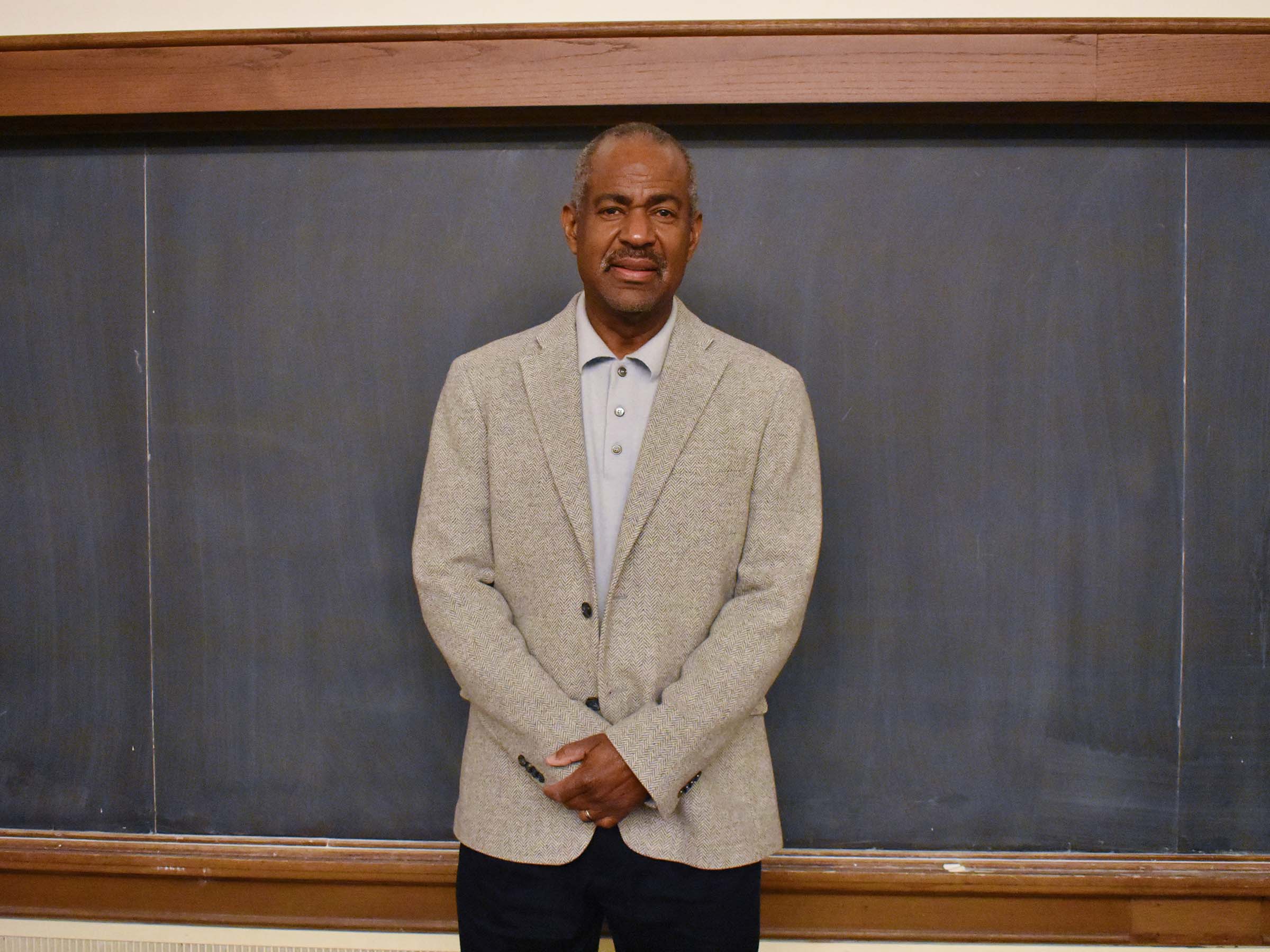Historian Michael Gomez on What Medieval African Empires Can Teach African Countries Today
The political and economic instability that plagues many parts of Africa can be addressed if nations gain control of their own resources—and a model for such success can be found in the continent’s precolonial history. That was the theme of a lecture delivered on February 8 in Taylor Hall by renowned historian Dr. Michael Gomez.

Gomez, Silver Professor of History and Middle Eastern and Islamic Studies at New York University, and the Director of its Center for the Study of Africa and the African Diaspora, is the author of African Dominion, a book on medieval West Africa, that focuses on the importance of early Africa in global history. Gomez contends in the book that Islam’s growth in West Africa, along with intensifying commerce, resulted in a series of political experiments unique to the region, culminating in the rise of powerful empires. African Dominion won the African Studies Association’s 2023 Book Prize and the Martin A. Klein Prize in African History from the American Historical Association.
Gomez opened his talk by noting that military coups have taken place in eight African countries in the past four years. He said many of these coups had drawn strong popular support because the nations have been wracked with growing discontent and poverty. He said those seeking answers to the issues facing many regions of the continent would be wise to look at the state of the region between the 9th and 15th centuries when vibrant empires emerged.
Dr. Gomez was recently a guest on Conversations @ the Salt Line with Wesley Dixon. Listen to the episode.
During this time, several large empires arose in West Africa, the largest of which was the Mali Empire ruled between 1312 and 1337 by Mansa Musa. “It was a time of stability and expansion,” Gomez said. “West Africa was at its pinnacle with rivers of commerce flowing to the Mediterranean.” Africa’s political troubles began, Gomez said, in the 15th century with the rise of the European and North American slave trade and the subsequent colonization of the continent.
To fully regain their political and economic independence, Gomez said, modern African nations must take control of their economies from multinational corporations, welcome the full participation of women in politics and commerce, reinvigorate Africa’s history of “political imagination,” and adopt the “cosmopolitanism” of the great empires of medieval West Africa. “I’m not sure how we get there,” he said, “but being in control of one’s own resources is the material basis for political independence.”
More than 120 students, faculty, and others in the Vassar community attended the lecture, co-sponsored by the History and Political Science departments, the Africana Studies Program, and the Medieval and Renaissance Studies Program.
Prior to his talk, Dr. Gomez visited an African history course taught by Professor of History Ismail Rashid.